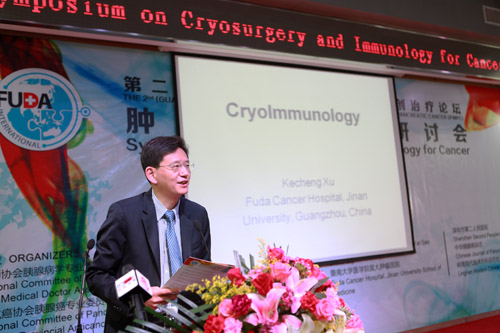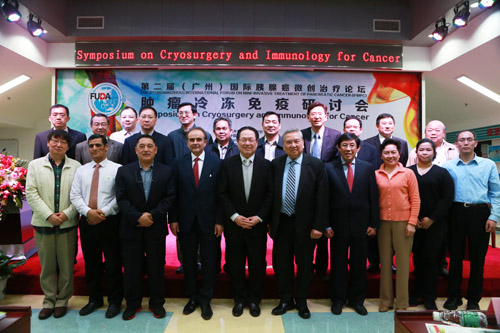During the week of publicity for nationwide cancer treatment and prevention and the 2nd (Guangzhou) International Forum on Mini-Invasive Treatment of Pancreatic Cancer, the Seminar on Cancer Cryoimmunotherapy was held in Fuda Cancer Hospital, Guangzhou, on the afternoon of April 10, 2015.
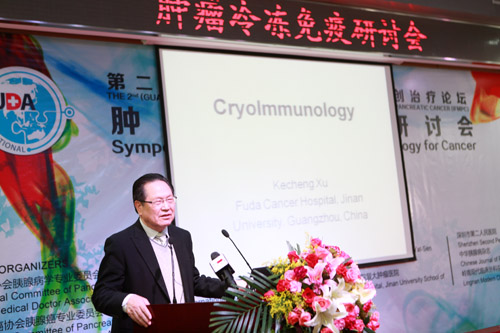
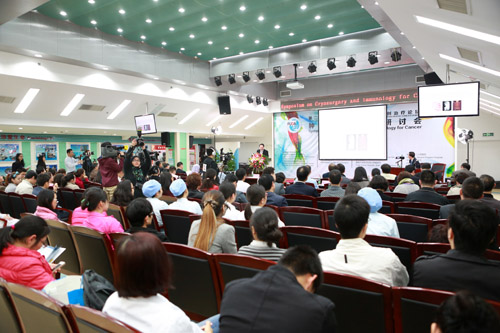
The seminar gathered quite a few experts, including Dr. Vay Liang W (Bill) Go, a distinguished pancreatic disease expert, director of the Pancreatic Disease Center of UCLA and editor-in-chief of U.S. Pancreas; Prof. Xie Keping and Huang shuyun, pancreatic cancer experts from U.S. MD Anderson Cancer Center; Prof. Nikolai N.Korpan, president of Austrian Society of Cryosurgery; Prof. Sajio Sumida, president of Japanese Society of Cryosurgery; Prof. Masashi Watanabe from Omori Medical Center of Toho University, Japan; Prof. Lv Youyong , a senior scientist from the Molecular Oncology Laboratory of Peking University Cancer Hospital; Li Yinhong, chief scientist for National Science and Technology Major Project (973 program)-Study on the Mechanisms of Treating Serious and Critical Diseases with Cancer Stem Cells, and head of the Public Health Research Department of Guangzhou Institute of Biomedicine and Health, Chinese Academy of Sciences.
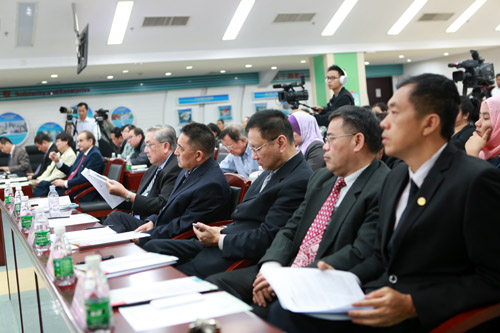
The experts conducted panel discussions on the relation between cryosurgery and immunotherapy as well as their roles in pancreatic cancer treatment.
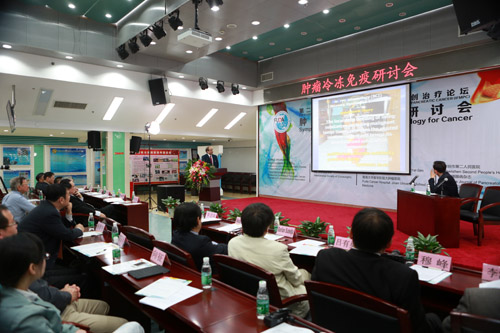
In the first part of the seminar, that is, keynote speeches about cancer cryoimmunotherapy, Prof. Nikolai N. Korpan put forward the latest technique of cancer treatment: biological cryoimmunotherapy. After that, Prof. Sajio Sumida, immunotherapy expert Lv Youyong, Gao Yunfei , Yang Jinghua, Chen Jibing, and Tao Huimin delivered brilliant speeches in succession. The speeches about immunotherapy with IgM-H-Ficolin & γδT cells and effect of B cells on cancer presented studies at world-class levels.
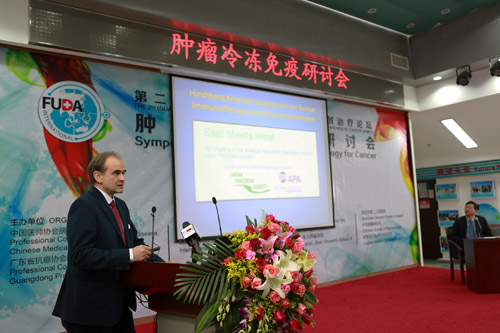
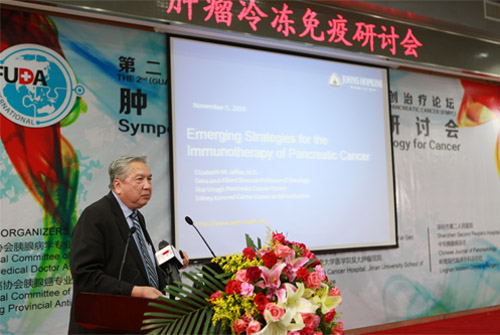
Cryotherapy is one of the characteristic therapies provided by Fuda Cancer Hospital. So far, cryotherapy has been applied to treating more than 10,000 patients, which is the greatest number of such cases in the world. FUDA is also the first hospital in the world to initiate combined immunotherapy. According to existing data, biological cryoimmunotherapy is considerably helpful to prolong lifespan and prevent or reduce recurrence for patients with progressive or metastatic carcinomas. Because of the therapy, postoperative cancer recurrence rate drops to 50%, and half of the patients with progressive carcinomas can survive 10 to 15 years or longer after treatment. With one step ahead of others, Fuda Cancer Hospital has conducted research and clinical experiments in cancer stem cell vaccine and the antitumous effect of immune cell B.
The research and treatment effect of pancreatic cancer were discussed in the remainder of the seminar.
To this day, pancreatic cancer treatment remains a daunting challenge. Most pancreatic cancer patients have local progression or metastases by the time of diagnosis. For patients with metastatic pancreatic cancer, one-year survival rate is lower than 20%, and five-year survival rate under 5%. The dominant treatment for pancreatic cancer patients is chemotherapy. Due to its high level of malignancy, pancreatic cancer is known as the king of cancer.
From the speech made by Dr. Niu Lizhi, vice president of Asian Society of Cryosurgery and chief specialist of the International Cryosurgery Center for Pancreatic Cancer (China-Austria-Japan cooperation), audiences saw a glimmer of hope. Niu Lizhi is the first doctor in China to adopt CT-guided percutaneous cryosurgery combined with iodine-125 seed implantation and immunotherapy. With the technique, nearly 500 pancreatic cancer patients have been successfully treated, and a majority of them was in Stage III or IV. Thanks to the technique, one-year survival rate is raised to 60%, which is far higher than the survival rate for patients who receive only chemotherapy. In some cases, patients survive more than 7 years after being treated.
